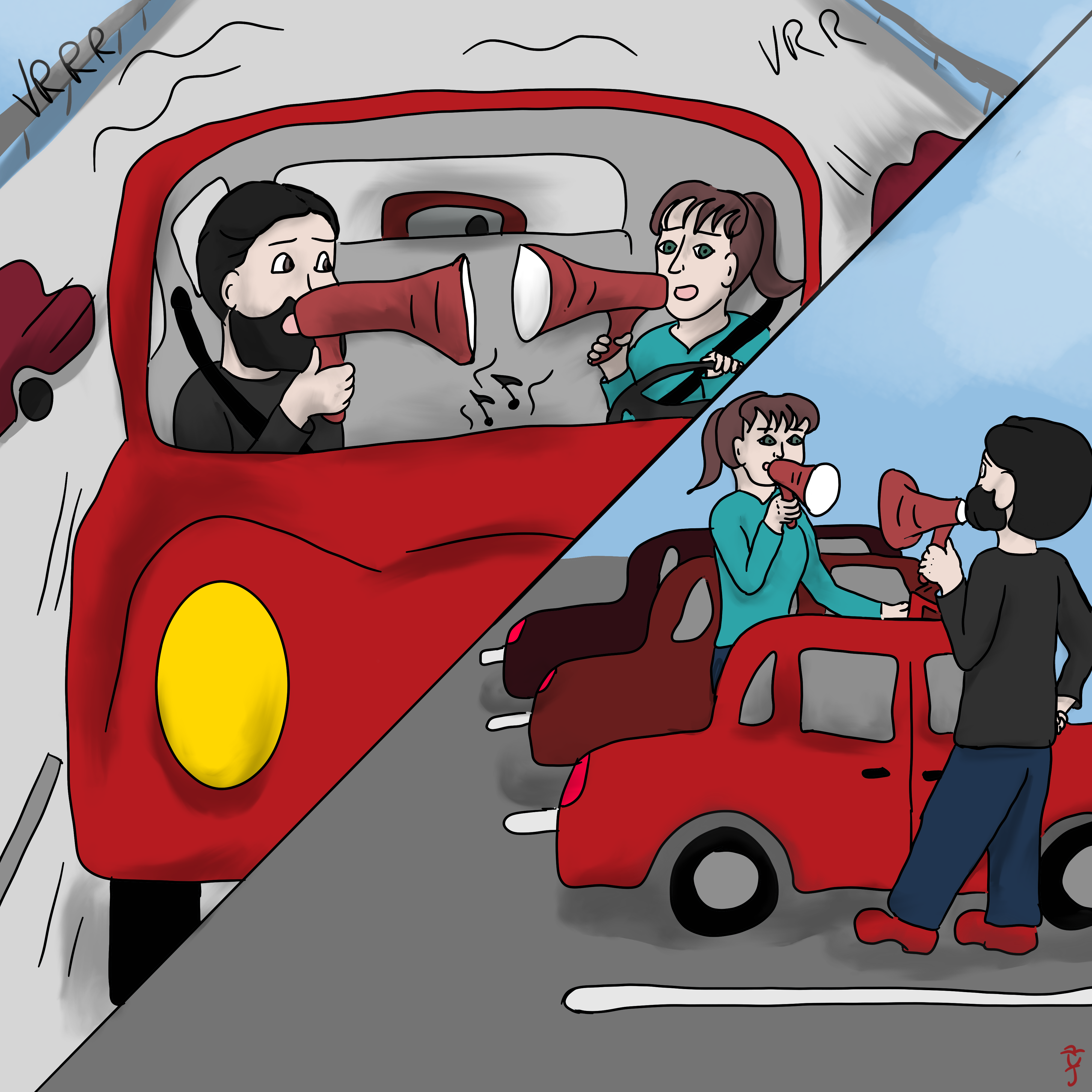This post is also available in Dutch .
Talking in a noisy car can be annoying. You almost have to shout to be understood. Curiously enough, evidence suggests people also talk like that in parked cars.

Image by Roselyne Chauvin.
Context effects on memory
Context-dependent memory is an essential concept of any introductory psychology course. It refers to the phenomenon whereby it’s easier to recall something you’ve learned when in the same environment you learned it in, as compared to a different environment. The classic example is a study where scuba divers had to memorize lists of words on dry land and underwater. They were later tested on those words either in the same or different context. The outcome? You guessed it: the divers remembered more words when tested on land when they had learned the words on land and vice versa.
As it turns out, this phenomenon extends to language as well. Details about the context in which we learn and use our words are stored alongside those words in our memory. A recent study examined what role such detailed memories of our words actually play in our language. The researchers went about this by looking at how contextual cues influence how people talk, specifically the very peculiar way people talk in cars.
Car-talk
In a noisy car, people tend to adopt a special way of speaking; to compensate for the noise from the engine, traffic, and in general being on the road, they use what’s called Lombard speech. This type of speech is characteristically louder, slower, and more high-pitched than normal speech, and thus easier to understand when there’s noise. Following from the evidence for context-dependent memory, the fact that people usually use this type of speech in a car should lead to an association between automobiles and Lombard speech. Hence, solely being in a car should trigger this way of talking. In the study, carried out at a university in New Zealand, the researchers wanted to see whether people would still speak this way when in a car, regardless of whether there was noise or not.
The experiment
The researchers recorded people reading out loud in a parked car and in the lab while wearing headphones transmitting typical car noise or nothing. As a control, the participants also completed the tasks without headphones. The researchers later measured how loud, clear, and high-pitched the speech was. They found that people spoke louder, clearer, and more high-pitched in the car than in the lab, even when they weren’t listening to noise. This suggests that just being in a car can make you talk as if there were noise.

Contextual cues, such as stuffed animals associated with a certain country, can make people perceive speech differently.
Photo of stimuli used in this study by University of Canterbury (2018), courtesy of Jennifer Hay.
Context effects on language are not limited to speaking but also extend to hearing. In a previous study on speech perception, the authors found that the mere presence of stuffed toy kangaroos and koalas, animals associated with Australia, made participants from New Zealand hear speech in a more “Australian way”.
This suggests that the effect of context on our brain may be larger than we previously thought. Not only our memory, but how we talk and even hear is altered by our environments. So don’t worry if you find yourself shouting in a quiet car: it’s completely normal.
Written by Mónica Wagner, edited by Annelies van Nuland, and translated by Rowena Emaus.
